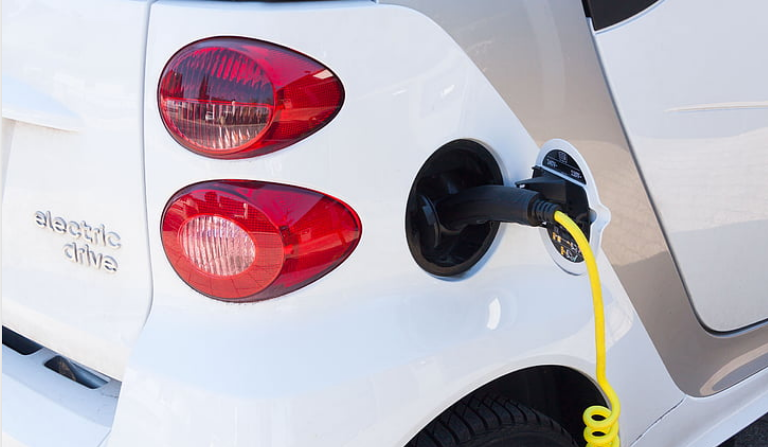And this is where the experts changed their mind and claimed that the sky was setting. However, Hyundai Group cars in 2024 will be an interesting figurehead for electric vehicle sales in general, especially as none of them are currently eligible for a U. The same is true for some EV startups as well. In the near future—and while many of them will never admit it—it’s entirely plausible that more automakers will take their own “wait and see” approach when expanding EV models, production, and battery systems
.
Sale of its flagship electric vehicle ID. In China, a new generation of low-cost high-tech electric models has overtaken the German company’s electric vehicles in the country, which accounted for around 34% of sales in the first 11 months of the year. VW sales in China have barely risen so far this year; the most important markets worldwide were the weakest. According to a recent announcement from Cox Automotive, we are also likely to see many more discounts and price reductions this year
.
They are satisfied enough with the record profits that the established automotive industry is currently achieving. So what happens if the government that initiated this bill becomes unemployed in November? It is not partisan slurry to say that if President Biden loses this year, whichever Republican occupies the White House instead, is likely to act to roll back the EPA’s strict fuel consumption rules that help make America a more focused market on electric cars. If you believe some of these headlines about last year’s buying and selling trends, the electric vehicle industry is on the verge of a crash in 2020. And this is where the experts changed their mind and claimed that the sky would set. If you believe some of these headlines about last year’s sales and sales, the electric vehicle market is on the verge of a crash in 2020. The CarGurus forecast predicts that, depending on conditions, the share of used electric vehicles could fall from 0.4% of the market today to 4 or 8%
in 2030.
I credit Ford for looking at this situation with clear eyes and transparency. Should the Federal Reserve cut interest rates in 2024, the cost of financing an electric vehicle is likely to fall significantly. I hope the article you’re reading is aging a bit better. Get upfront price quotes for local inventory
.
Sales of electric vehicles continue to grow and are likely to continue to improve, just not at the astronomical rate that the industry has seen in recent years. After all, President Trump rolled back those same standards during his term in office. Whether you’re a newbie or a traditional behemoth trying to change, you’ve got a lot to prove this year. Wheatley from Beam Global does not address such forecasts and argues that demand fluctuations are expected
should.
For many of these companies, what’s on the market right now is almost a rough draft until they can figure out how to move on to battery and software-oriented companies that are able to compete with Tesla and China’s electric vehicle giants. The series have disappointed, and so VW decided against scrapping the 50-year-old Golf last year and is currently developing an all-electric version that the company said could be on the market by the end of the decade. Prices fell in order to align supply and demand curves. Production volumes rose as did sales, but the two did not match.
If a new government doesn’t put so much pressure on them to switch to electricity, they could give themselves plenty of time to get there. It was also a groundbreaking year for hybrid vehicle sales, which is also good news for the climate. Thousands of dollars fell off the prices of models across the board, and yet inventories rose. But here’s the thing with investors
.
Because although Tesla is facing more direct competitors than ever before and its market share is declining in all countries except China, Tesla is still by far the market leader in electric vehicles. At best, new electric vehicles could account for 50% of the market by 2030, or by then only 23% could rise from the current 8% to 23%. And in the meantime, automakers must figure out how to cut costs, including the costs that are passed on to consumers. Stiff tariffs are keeping BYD and the other Chinese automakers away from America for now, but they are increasingly penetrating VW’s home country
before.
And none of these companies can count on China to be an unlimited cash cow forever. But here in America, the vast majority of cars we drive are tailored to the tastes and needs of our market, and the Inflation Reduction Act provides high incentives for electric vehicles and batteries, which are also built here. Tax credits are supposed to apply until 2024, but some cars may no longer be eligible or only eligible for reduced credits. That is not to say that Biden’s exit from the White House will somehow end the electric vehicle market
; entirely on the contrary.
Whether VW can repel this country’s electric vehicles or not is now a central question for its future and an important trend to watch this year. BYD doesn’t sell in America, and no other company can match the success that the Model 3 and Model Y had over the past year, period. But don’t expect double-digit cost declines over the next year. It can take years for electric vehicle price tags to reflect lower production costs. And over the months, we’ll see if I’m right about all of this.
The new Chinese competition is also aimed at Germany and Europe. If sales actually fall — which I think is unlikely — that’s a sign of far more worrying trends around electricity demand. A bigger question here could be what happens to the second-hand market for all these CCS-equipped cars in a few years, but we’re a long way from playing that off. The automotive industry is in fact a global
sector.
It is more likely that any industry-wide shift away from gasoline-powered cars is likely to occur gradually over the next few years. Many have gone full throttle with electric cars, and the rest of the industry — not to mention car buyers — is coming to the idea that this will be a transformation with many ups and downs. The past year should be the starting point for electric vehicles worldwide, the year when sales of electric vehicles would permanently dwarf sales of internal combustion engines, in a predictable development that finance departments prefer. And it’s not like capital markets are so good these days because interest rates are
so high are like them.
That last sentence is crucial, especially when you look at the huge sales year that China’s BYD has just had. My reading of things can’t possibly cover every single outcome in 2024, and that doesn’t even cover the growth of the hybrid market or the many challenges automakers face specifically in the area of software. But they won’t have the luxury of time forever. Change is happening, just not as fast as automakers, analysts, and Wall Street types had
expected.
Lucid has repeatedly been crucified for burning money, and Fisker’s early stage problems come at a time when the company is facing the strongest competition the electric vehicle sector has ever seen. These cars were the first electric vehicles for many people; this is likely to be the case in 2024 as well. The Econ 101 class was introduced for everyone and there were too many products on the market that followed too few buyers.
Will all cars have to be electric by 2025?
The company has committed to driving all of its new vehicles purely electrically with fuel cell electric vehicles and battery-powered electric vehicles from 2025, with the goal of being a 100 percent zero-emission vehicle brand by 2030 and climate-neutral by 2030. The company has committed to all of its new vehicles being purely electric with fuel cell electric vehicles and battery-powered electric vehicles from 2025, with the goal of being a 100 percent zero-emission vehicle brand by 2030 and climate-neutral by 20. 35.Honda has teamed up with General Motors, an agreement that allows Honda to use GM’s upcoming Ultium batteries, a proprietary technology that, according to GM, includes electric trips via will allow long distances. The company has committed to operating all of its new vehicles purely electrically with fuel cell electric vehicles and battery-powered electric vehicles from 2025, with the goal of being a 100 percent vehicle brand by 2030 and climate-neutral by 2030. Honda has teamed up with General Motors, an agreement that allows Honda to use GM’s upcoming Ultium batteries, a proprietary technology that GM says will enable long-distance electric travel. Editorials represent the most advanced research with significant potential for major impacts in this area. In addition, Honda established a joint venture with Sony to jointly produce battery-powered electric vehicles under
the Afeela brand.
The aim is to provide an overview of some of the most exciting work published in the journal’s various research areas. According to the company’s CEO, all Bentleys plug-ins will be either hybrid or pure electric vehicles by 2026 and exclusively electric by the end of the decade. Think of Toyota’s electrical components and Subaru’s rich four-wheel drive history, and you get the picture. American Honda, which sells popular Honda and Acura brand cars, SUVs and pickups to American consumers, has been involved with electrified cars for a long time
.Editor’s Choice articles are based on recommendations from academic editors of MDPI journals around the world. A feature paper should be a comprehensive original article that covers various techniques or approaches, provides an outlook on future research directions, and describes potential research applications. The editors select a small number of articles that have recently been published in the journal and which they believe are particularly interesting to readers or important to the particular area of research. Volvo has directly formulated its plan to exclusively build pure electric vehicles by the end of the decade
.
Mitsubishi launched the short-lived i-MiEV, a small electric hatchback, around the same time as the Nissan Leaf, and currently has plug-in hybrid models in the US. However, the automaker promised that Lexus, Toyota’s luxury brand, would be 100 percent electric in the US by the end of the decade. Hyundai has already launched the Kona Electric and Ioniq Electric models, and it has launched the first of three planned models in its all-electric Ioniq sub-brand, the Ioniq 5 SUV. Feuilletons are submitted upon individual invitation or recommendation from the scientific editorial team and must be rated positively by the reviewers
.
Subaru entered the electric vehicle market with an all-electric SUV called Solterra. Buick will launch its first electric vehicle in 2024 as the company plans ahead of time to offer an all-electric product portfolio by the end of the decade. The Jaguar side of the company has already made waves with its Tesla-fighting electric SUV, the I-Pace, and the company says the Land Rover side will have its first EV model by 2024. The company has committed to being purely electric with fuel cell electric vehicles and battery-powered electric vehicles from 2025, with the goal of being a 100 percent zero-emission vehicle brand by 2030 and climate-neutral by 2030. Honda has teamed up with General Motors, an agreement that allows Honda to use GM’s upcoming Ultium batteries, a proprietary technology that GM says will enable long-range electric rides, among other things. The Jaguar side of the company has already made waves with their Tesla-fighting electric SUV, the I-Pace, and the company says the Land Rover side will have their first electric vehicle by 2024. The agreement also provides for shared use of vehicle platforms, which will enable both automakers to use the basic building blocks of GM’s electric vehicle architecture when designing and building
their own cars
.






